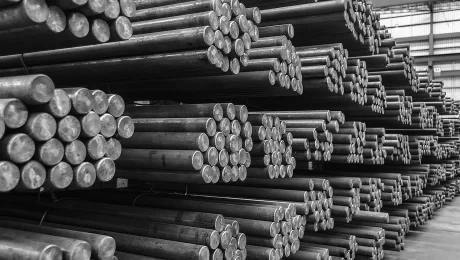Title:
Quality Standards: What They Are and Why They Matter for Steel Round Bars
Have you ever wondered why products look and perform the way they do, or why two steel round bars from different companies can feel so similar? The secret is in Quality Standards. But what are quality standards, and why should you care about them—especially if you’re just starting to learn about manufacturing or steel products? Keep reading to discover the answers and why understanding quality standards could surprise you!
What Are Quality Standards?
Quality Standards are agreed-upon rules or guidelines for how products, services, or processes should meet certain requirements. Think of them as the recipe for making sure things are safe, reliable, and do what they’re supposed to do. These standards can be created by international organizations or by local governments, and they help everyone know what to expect.
Why Do We Need Quality Standards?
Imagine building a bridge. Would you want to use steel bars that bend easily or break under pressure? Of course not. That’s why quality standards exist: to protect people, make products safer, and ensure they do their jobs well. Without them, things could go wrong—sometimes dangerously so.
Quality Standards in Steel Round Bars
Steel round bars are used in buildings, tools, cars, and even playground equipment. Because they must support weight and handle stress, every piece needs to be strong and safe. Here, quality standards play a major role.
Standards for steel round bars set the rules for things like:
- How round the bar must be
- How strong it must be (measured by tensile strength)
- How smooth the surface should be
- What materials are allowed in the steel
- Testing methods and marking for identification
All these requirements ensure that when a steel round bar is used in a bridge, building, or machine, it will be safe and dependable.
Who Creates and Monitors Quality Standards?
Several groups are responsible for creating quality standards:
- International bodies. The International Organization for Standardization (ISO) sets many global standards.
- National organizations. In the U.S., the American Society for Testing and Materials (ASTM) sets its own rules, while in India, the Bureau of Indian Standards (BIS) does the same.
- Industry associations. Groups of companies may create their own guidelines, especially for specific products like steel round bars.
Manufacturers must follow these rules to sell their products. Sometimes, inspectors check whether factories meet the standards. If not, the products can’t be sold.
How Are Quality Standards Checked?
Quality isn’t just promised; it’s tested. Factories analyze random samples of their steel round bars to make sure each batch meets the rules. This can involve:
- Measuring chemical makeup (is there enough carbon or iron?)
- Strength tests (does the bar bend or break?)
- Checking dimensions (is the bar truly round and the right thickness?)
- Surface inspection (any cracks or flaws?)
If a product fails any test, it won’t be sold. This process makes sure only safe, high-quality steel round bars reach customers.
What Happens if There Are No Quality Standards?
Without quality standards, buyers couldn’t trust what they get. Imagine buying a steel round bar only to find it rusts, bends easily, or isn’t really the size you paid for. Problems like this waste money and can be hazardous. Quality standards give everyone—from builders to businesses—confidence in their materials.
Benefits of Quality Standards for Everyone
- For customers: Peace of mind that products will perform
- For manufacturers: Easier to prove their products are reliable
- For governments: Safer buildings and infrastructure
- For the environment: Less waste since poor-quality products are caught early
But Wait—How Does Quality Keep Improving?
Quality standards aren’t frozen in time. As technology improves, new standards are made or old ones updated. This constant improvement helps products become stronger, safer, and more efficient. Curious about what new standards mean for the future of steel? We’ll cover that next!
Conclusion
Quality standards aren’t just technical jargon—they make life safer, better, and more predictable. When it comes to steel round bars, these rules mean you can trust the steel holding up your school, bridge, or home. Now you know why quality standards matter, who creates them, and what they mean for steel products. Want to learn more? Next time, we’ll explore how different countries compare their standards and what’s coming in the world of steel!
Related secondary keywords: steel round bar standards, steel bar testing, ASTM steel standards, ISO quality standards, tensile strength steel bars

